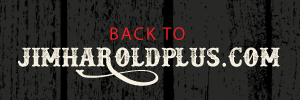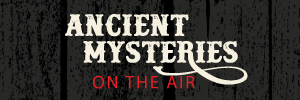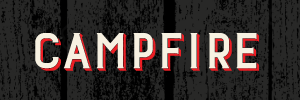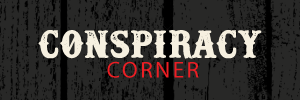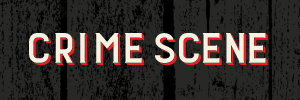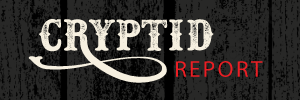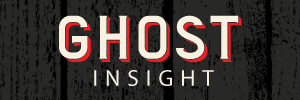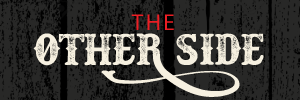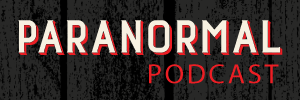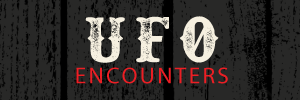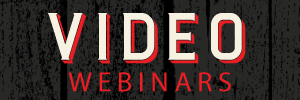Feb 15, 2022
Sara Mastros joins us to talk all about incense and its magical properties.
You can find her recent book on the subject at Amazon: The Big Book of Magical Incense
Thanks Sara!
JIM'S FREE NEWSLETTER
Never miss anything going on at the Spooky Studio, sign up for Jim's FREE newsletter HERE!
TRANSCRIPT
Please note we do not guarantee 100% transcript accuracy. The below reflects a best effort. Thank you for your understanding.
Jim Harold 0:00
Fleeting glimpses of things seen through a veil, darkly. Do we
understand the meaning of these visions of life, why we are here,
and how little of our existence we truly understand? Tonight we
will talk about these things on, _The Other Side_.
Welcome to _The Other Side_. I'm Jim Harold, so glad to be with you, and I think we're gonna have a fascinating show. And, you know, of all the shows we've done, this is the most recent, first of all, I stole that from an area broadcaster.
Sara Mastros 0:30
(Laughs).
Jim Harold 0:30
But of all the shows I've done-- we've done, I think over 2,500
episodes of our various podcasts. I don't think we've ever covered
this topic, and it's time that we do. The topic is that of incense,
magical incense. In fact, there's a recent book out it's called
_The Big Book of Magical Incense_, and we have the author with us,
Sara L. Mastros. And we're so glad to have her with us. She holds a
master's degree in Theoretical Mathematics, impressive, and has
been a high school and college teacher for nearly a decade. She is
the co-owner of Mastros & Zealot, where she offers courses on
practical magic and divination. And has been making and selling
magical incense online and at pagan and occult festivals all over
the East Coast for several years. She has been a contributor to
Witches and Pagans, Cartomancer, and other magazines. And we're so
glad to have her on today to talk about _The Big Book of Magical
Incense_. Sara, welcome to the program.
Sara Mastros 0:33
Thank you so much for having me.
Jim Harold 0:53
So why did you decide to tackle this topic? Why did you think,
"this is something that's worthy of a big book?"
Sara Mastros 1:41
Well, so I started off making incense for my personal use. And I
don't know how it is when anybody else is making things. But you
know, you add a little bit of this a little bit it and all of a
sudden, you find out that you have maybe a gallon of incense more
than you could ever conceivably use. So that's how it started off,
is I would make incense and sometimes I'd end up with like these
giant quantities, so I just started giving it out, right? And that
slowly transformed into me selling it. But as anybody who Googles
my name will find out, I'm like actually terrible at marketing. So
to ad-- and icense is kind of hard to advertise, because it's just
like, a bowl full of plants. Like it's kind of hard to show off in
a photo--
Jim Harold 2:25
Right.
Sara Mastros 2:25
--like its essential quality, it's smell, does not really convey in
an internet ad. So I started basically putting recipes for the
incense with the incense to sell it, right? Because, that way
people can make it at home if they want. And also that way, people
sort of like know exactly what's in it. Well, the recipes were
super popular. And it turns out, I don't--I'm, like, not-- yeah, so
now I sell (unintelligible), basically, is the short answer to,
like: how I ended up with-- in the (unintelligible) of incense
recipes, as opposed to... I don't know. I always wonder how anybody
starts any book, like all of my book projects have always been kind
of like accidental, and I fell into them.
Jim Harold 3:06
That's- that- that's neat. But I mean, it, really, it seems like a
great idea for a book because, again, I'm not really steeped in the
mystique of incense, but I don't know of any other specific books--
or I've not run across it over the years I've been doing these
shows. And you would think it was something that I would've run
across I've not so I think it's a good idea. Now let me ask you
this: some people just think-- and I'm looking from like a
101-beginner's perspective-- think, "oh, incense is just something
you burn that has a nice, pretty scent to it, and just kind of
makes you feel mellow and calm and those kind of things." And
that's it, but it's a lot more, isn't it?
Sara Mastros 3:44
Well, I mean, I don't want to discount the fact that like the
essential function of incense, in almost any context, is to just,
like, smell nice. Like, that's important.
Jim Harold 3:54
Mhm.
Sara Mastros 3:54
But, like, almost anything that-- you know, when we smell, like,
the particles or the things we're smelling go, like, it's a very
intimate sense, right? They actually like make direct contact with
a little piece of our brain that like descends into our nasal
cavity. So you know, incense, it has potent impacts on the body and
the brain, right. Like, all incense is also a drug, right? Like
every chemical you sort of, like, interact with in such an intimate
way. Like, everything you smell is, in fact, having an impact on
your brain. And many traditional instances have, like, really quite
strong impacts on the brain. So like frankincense, for example, is
like clinically established as an antidepressant and as an anti
anxiolytic: it makes you less anxious and broadly, like, as a mood
uplifter, right. And so we have like this sort of continuum of
experiences of incense that range from like, a pure just, like,
sensory delight, right? Like it smells nice, it makes you happy.
Like there's just a sensual delight to incense. Right, and but
you've also got like these chemical properties, and then you also
have sort of like these magical virtues, right. So incense has a
very, very long tradition of use in sorcery both as an offering to
many categories of spirits, but also as like- like a practical
spell component, right. Like the pieces in the incense are sort of
doing some of the heavy lifting in a sorcerer sense, in many
contexts. So like I said, we have a spectrum of uses for incense
that we can kind of mix and match from.
Jim Harold 5:44
Now the book actually came with it, some incense. The copy that I
got, yes. That was kind of neat.
Sara Mastros 5:50
Perseph-
Jim Harold 5:52
What was it again?
Sara Mastros 5:53
I think it was Persephone and Underworld incense that we sent out
with the review copies.
Jim Harold 5:58
Oh, that's nice. That's a very nice touch.
Sara Mastros 5:59
Thank you.
Jim Harold 5:59
I thought that was very, very cool. So um, where does one find
incense? I mean, that seems like a silly question. But is it at,
man, you know, spiritual shops and those kind of places?
Sara Mastros 6:13
You certainly can buy premade incense in witch shops and lots of
other places as well, right. Personally, I advocate people make
their own. So almost all the recipes in the book can be made with
like a very small and easy to get sort of like basic pantry of
ingredients, most of which you can get at the grocery store. But I
also encourage people to, like, work with plants that they
themselves are growing; that like live in their- their eco region.
Like living plants with whom they have a genuine relationship is,
in my opinion, the best place to get incense. But of course, like
anything else, you can also just buy it on Amazon. But I'd rather,
you didn't because Amazon's literally the devil.
Jim Harold 7:00
Okay, there you go. Now, um, so in terms of how you make it, like,
can you just take us through the process of making incense: how
simple or complicated it can be? And just like a common recipe,
just kind of how you would do it, just verbally.
Sara Mastros 7:17
Sure. So primarily, what I make, and what I like best is loose
incense that's intended to be burned on charcoal, right. So the
first thing is you need to get some incense charcoal, which you can
get at any kind of witch store. You can also almost always find it
at Middle Eastern or Indian grocery stores. You can also find it at
like (unintelligible), it's the same kind of charcoal that goes
like in the bottom of a hookah, I think. Um, so it's quite easy.
And again, I'm sure you can buy it online as well. Right, so you
need charcoal. And honestly at this- at that point, the simplest
way to make incense is to take plant material, and put it on
smoldering charcoal. And that's it. Right, like, at its very
simplest. And then the way I make compound incense is usually I
grind some of the ingredients a little smaller. The smaller the
pieces, the individual like little pieces of plant material are,
um, like, the slower they will burn. So by grinding some of them,
you sort of like release more scent faster. Right, and then I like
to bind my incenses together, like stick everything together with a
little bit of honey. Um, well any like, sticks everything together.
So the different ingredients, like, you make sure you get some of
every ingredient, like, in every pinch full. But additionally, the
honey itself provides a little bit of like a sweet scent. And it
also provides, like, heavy thick smoke coming out of your incense;
which is my favorite thing about incense. Like, there's something
very, like, primal and dramatic about, like, you- you know, you
sprinkle a little bit and all of a sudden, there's like this cloud
of smoke forming in front of you that you can like scrye in to
watch for patterns, that you can ask spirits to manifest in, right
so that they have something that's like really easy to form,
because they don't have bodies so like interacting with physical
materials not that easy, right.
Jim Harold 7:17
Sure.
Sara Mastros 7:23
But like the smoke provides a medium in which they can
manifest.
So when I hear-- think of scrying, I usually think of a black mirror, but you can actually scrye with incense? Can you talk to us about how that works?
Yeah, so scrying in smoke is a very, very traditional kind of divination that is sometimes called libanomancy. Although, libanomancy, technically, is like the word that's the- the Latin name for frankincense, in particular. So a lot of older texts, particularly older European texts, when they say incense, they definitely mean specifically frankincense, but libanomancy can really be done with any kind of incense. And it's basically the same as like looking in clouds to find pictures in them. Right, or any other kind of, like, sort of scrying in a effectively random and ephemeral material, right? So just like, you know, there's also methods where you like, say, put oil in water, and it makes little patterns, or like you read tea leaves, and you read those patterns. It's broadly in that category of scrying. From a practical level, it works very similarly to Dark Mirror Evocation, which is how I learned to do it, as well. I will say my favorite actually, is to put, like, basically, it- this is a little hard to describe on radio, I wish I could show, but you know, there's a, like, I'm facing the mirror. And then in front of that is the incense, and there's sort of like a cloud of smoke between me and the mirror, which just provides a little more like random swirlyness in which to scrye.
Jim Harold 10:48
Interesting. I never thought about it that way, but it makes a lot
of sense. I like how you describe it, "to give the spirits a medium
to project themselves on or form themselves into."
Sara Mastros 10:58
Yeah, so that's a pretty common method of- of spirit evocation, is
to provide like a smoke medium in- for which- in which they can
manifest.
Jim Harold 11:09
Is it the case with incense that different kinds of incense are
prescribed or better for different things?
Sara Mastros 11:16
Yes.
Jim Harold 11:16
You know, if somebody is trying to cast a spell, one kind of-- is
good for another. Okay, so if that be the case, can you give us
like some examples of some particular types of incense that are
good for certain types of spells and so forth?
Sara Mastros 11:31
Sure. So for the kind of spirit evocation we were talking about, I
have a specific recipe in the book called, "Ooky Spooky Evocation
Incense," but broadly, what, you- you know, all the recipes in the
book, I try really hard. They're intended as examples rather than,
like, prescriptions, right? So I try really hard to explain, like,
why every ingredient is present in that spell, like in that recipe,
so that you can learn to form your own, right.
Jim Harold 11:50
Right. And--
Sara Mastros 11:58
So Ooky-- Oh, go ahead.
Jim Harold 12:04
Well, I was just gonna say, just you-- folks, you can't see this on
video, but Sara just picked up the book. And I have a copy here.
This is a- this is a-- and I want to get back to that, and I
apologize. I just want to compliment you. This is a very
substantial book. It's not a pamphlet, folks. So it is really, _The
Big Book of Magical Incense_, if you want to check it out.
Sara Mastros 12:23
I think it's just about-- it's just over 250 pages, I think. Plus
there's like some index and appendix and stuff.
Jim Harold 12:30
Very nicely done. Now you're gonna tell us about the Ooky
Spooky.
Sara Mastros 12:35
Evocation smoke, right. So this is a smoke specifically designed
for spirits to manifest in, but of course, I would even, like,
tweak this recipe depending on the kind of spirit, right? So the
recipe starts with Wormwood, um, which is a kind of Artemisia that
is often used in spirit evocation. Um, you could really substitute
any kind of Artemisia, so if you didn't have Wormwood, you could
definitely use Mugwort. Um, Wormwood does have a slightly more-- it
is a slightly stronger trance inducer. So for example, Wormwood is
the active ingredient in absinthe, right. So I do like Wormwood for
this; it's very traditional for spirit evocation. Wormwood,
particularly for Goetic Spirit Evocation, but in many different
styles. So you could withsubstit any kind of Artemesia. Mugwort, at
least where you and I live, is extremely ubiquitous. Like it grows
in every roadside ditch, basically. Like super easy to come by.
Jim Harold 13:39
Mhm.
Sara Mastros 13:39
Resin-- so I like frankincense for this, but depending on the kind
of spirit-- in my own personal work, I've been switching more and
more to local pine resin, because I'd rather use local plants than
import frankincense where it's a little tricky to make sure you
source it in a way that is, like, ethical and responsible not just
to the plants, but also to like the people who grow and raise it.
Like fairtrade frankencense, that's a little tricky to source. So I
like pine resin. This has-- this recipe has star anise in it which
is really good for like opening the psychic senses, right. In fact,
many people recommend you just put a bowl full of star anise next
to your bed, where you can smell it just a little bit to like
trigger more vivid dreams, right. And then this one's got Dittany
of Crete in it, which is a kind of fancy oregano that is very
closely associated with spellwork. Um, I particularly like Dittany
of Crete. This is gonna sound a little goof box. I'm not sure...
You know, it's hard to talk about magic and not sound like a crazy
person, because we don't have a fully formed technical vocabulary
for it in English. But I particularly like Dittany of Crete for
time travel, and like magic and spirit evocation that is intended
to sort of like scrye across time.
Jim Harold 15:01
Can I- Can I just stop you there?
Sara Mastros 15:03
Yeah.
Jim Harold 15:03
Time travel. Talk to us about the-- that context? Is it literal
time travel? Or is it figurative time travel? Talk to us about that
a minute if you could.
Sara Mastros 15:11
Well. So as you mentioned, I have a background in mathematics. I'm
going to try not to (unintelligible) here. But like, when we say
literal time travel, even though it's a little unclear what we're
talking about, as travel is generally in space and not in time. And
like, the way-- you know, human perception of time, is generally
limited to like as a singular linear dimension, right?
Jim Harold 15:33
Right.
Sara Mastros 15:33
There's a path that's before us, and then there's a now, and then
there's a future ahead of us, and there's not like deviation from
that.
Jim Harold 15:40
And- and, if I understand correctly, and I am a total neophyte at
this, and not not steeped in mathematics, but the way that we
perceive time is just a human construct. And it actually does not
necessarily map to reality, is that correct?
Sara Mastros 15:54
Well, I don't know that I would go so far as to say it doesn't
match reality. But just like, you know, we can only see certain
colors of visible light. But that doesn't mean like, those are the
only kinds of light that exists. Those are just the only kind human
eyes are adapted to see.
Jim Harold 16:08
Gotcha.
Sara Mastros 16:08
Like similarly, I think the way we perceive time and space, and in
fact, they don't really acknowledge time, and space is fully
separate, but the way humans interact with sort of spacetime, like
we only see-- we only-- our bodies are only designed, evolved, you
know, I'm not saying intelligence, whatever, like to interact with
a relatively like small portion of that, right. So I think it's
not-- I wouldn't say that human perception of time is inaccurate,
so much as it is just like limited. Like, it's just more
complicated, that there are parts that we do not have normal
sensory access to. And personally, I would say, like one of the
sort of core components of magic, like if you're looking at
something and saying, like, "is this magic yes or no?" Like, the
interaction with things outside the normal, human perceptive bubble
is kind of one of the hallmarks, but I think, you know, all of us
have that experience. Like, I really believe that almost all humans
if you really, like ask them, like they do have experience of stuff
that like, our culture tells us we're not supposed to
experience.
Jim Harold 17:17
Oh, I know. I have a whole show based on that concept. It's called
_Jim Harold's Campfire_.
Sara Mastros 17:21
Yeah, right, I know, I'm kind of preaching to the choir.
Jim Harold 17:23
Yeah.
Sara Mastros 17:23
So- So by time travel, usually what I mean, is, like, just
perceiving other times, right. So like getting-- we talked about
time is linear. That's not really how I understand time to work.
And I will also say, like, here's a fact about me, I have a like,
neurologist. Like, I have a clinically deficient memory. Like
there's some ways in which my memory does not jive up with
everybody else's. And because of that, like, the way humans
perceive the past is called memory, and mine works differently than
other people's, right. So my understanding of time and our passage
through it, instead of it being a line, is that like, here, I am in
the, like, here now. Right, I'm moving my hands around, but I
realize we're on the radio, so nobody can actually see this.
Jim Harold 18:19
(Laughs).
Sara Mastros 18:19
But we're here in the here now, right. And like, there is a fan of
possible timelines that sort of spreads out into the past that
like, all of those timelines pass through this moment that I am
having, but there are multiple pasts that like led to this place.
And similarly, it's easier to understand when we think about the
future, right? That framing this place, like not, ultimately, I
can't get to all timelines from here. But there is like a proximal
neighborhood of timelines, all of which pass through the moment I
am currently in. So when we talk about time travel, most of the
time, I am really talking about time perception across those
timelines. So the way I think about it is, I sort of listen to the
future. And the things that like are common in my whole
neighborhood of timelines near me, like my neighborhood of possible
futures, I guess you could say it, like many things sort of echo
across all or most of those timelines, and those are things that
are simply like, likely to come to pass. Right. And then any more
sophisticated way, right, you can more complexly interact with
those other timelines. Right. So in addition to just seeing them
you can, like, have conversations with people in them, I guess is
what I would say.
Jim Harold 19:41
And I was sorry to get your sidetrack. But that's so fascinating to
me, because people will say, "Well, if you could have one
superpower, what would it be?' And I would love to have the
capability to time travel, if I could do it without getting into
the Grandfather Paradox and causing, you know, every Twilight Zone
you've ever seen or everything- any show that talks about time
travel, somebody goes back and they, you know, drop a quarter on
the curb, and it causes all kinds of changes in history, and they
go back and the earth is destroyed.
Sara Mastros 20:11
Sure.
Jim Harold 20:11
You know, if I could do away with that part, and just go back and
be a spectator at different parts of history, so I could see-
really see what happened. That would be great. So anytime somebody
says, time travel.
Sara Mastros 20:25
I will also say as a person who experiences time in a non-standard
way, like it's got downsides. It does make it hard to like, keep
track of what other people think happened in the past.
Jim Harold 20:38
Interesting, interesting. So um-
Sara Mastros 20:41
Again: clinically deficient, autobiographical memory. So like, my-
my ex- my past is less fixed for me than other people's are,
experientially, because those memories just like, aren't always
properly there. I don't know. Whatever, there's a problem in my
brain. When I say problem, you know what, like, between you and me,
my brain is pretty good at Brain Stuff. So I wouldn't trade my
brain for somebody else's.
Jim Harold 21:07
I can tell you're very good at Brain Stuff. I can tell you're very,
very intelligent. Now. And this is a tough one. I think if-- I
always ask people this kind of question when they go into a
subject, what are some of your favorites?
Sara Mastros 21:21
My favorite incenses?
Jim Harold 21:22
Yes.
Sara Mastros 21:24
Um, let me talk a little bit about like favorite ingredients,
because I will say my favorite incenses are always the ones that I
just like create spontaneously, like in the moment, that are for
that exact moment. But ingredients I really love that like come up
a lot. I do really love frankincense. Like I said, I, you know,
sometimes cut back on it, because it's it's hard to ethically
source, but I just love frankincense. I love the smell of it. I
just want to like, roll around in frankincense all the time. In
fact, I started taking frankincense pills for joint inflammation,
and they're great. (Laughs). I just love frankincense. Dittany of
Crete, I mentioned before, actually is a really, like-- so I was
saying, I don't normally like to import ingredients. I've been
trying to grow Dittany of Crete here, but I have not yet
successfully gotten it to overwinter in Pittsburgh. And I mean,
it's not supposed to. Like, it's from Crete. It is, in fact, too
cold in Pittsburgh, or I imagine Cleveland, to grow it here, but
I've been trying. Um, I just really- I just really like Dittany of
Crete. It's got like a real... Partly, I mean, I also cook with it.
I will say like I cook with Dittany of Crete a lot. It is, in fact,
technically just a kind of fancy oregano. 'Cause it's actually-- if
people are trying to imagine Dittany of Crete, it's basically a
cross between oregano and marjoram, is the easiest way to think
about it. Like, so in terms of like cooking and smell, that's
pretty much where it is. Um, I really like an ingredient called
Chios Mastic, which is another kind of resin, that is from the
island of- the Greek island of Chios, which is where some of my
family is from. Um... Cinnamon! I love cinnamon, so I will say
frankincense, cinnamon, orange peels, like this time of year, is a
very like happy, sunny-- I just really liked that incense that
like-- You know it's all gray, and freezing rain here right now,
and I think there as well, so like frankincense, cinnamon, or
really any kind of-- pine resin, cinnamon, orange peels is also
just like a really-- just like super nice incense that just, like,
makes me feel happy, and sunny, and healthy.
Jim Harold 23:39
And it sounds like you know the ingredients to make incense are
pretty readily- readily available one way or the other. It may vary
with your area, but it's something that's really accessible to
everybody
Sara Mastros 23:54
Yeah, everybody, like. every eco-region grows incense. So, like,
there is some kind of local resin tree to almost anyone reading
this. So in the eastern United States, the most common, like, tree
from which to wildcraft resin, would be white pine. Um, which like
where I live, and where you live, for most of the like Northeast,
is just fully ubiquitous. Like, it's in-- like, both it is native,
but also it's a common landscape plant. So if you just wander
around the suburbs, you'll definitely find it. Um, and then in the
West, like Pinyon pine, which I don't have as much experience with.
Sweet Gum in the South. Like every ecosystem produces plants for
incense, but additionally, like there's a lot of overlap between
cooking spices and herbs and incense. Spices and herbs, as you
might imagine. So I tried in the book really hard to-- like, I
talked about some more exotic ingredients. But I, personally, like,
I'm-- my preference would be that people work exclusively with
plants that came out of like their backyard supplemented with
things that came out of their kitchen or grocery store.
Jim Harold 25:03
Yeah, isn't there more of a-- I don't know if they're spiritually
more connection--
Sara Mastros 25:08
Mhm.
Jim Harold 25:08
--but it would seem, you know, to somebody like me, just looking on
the outside of it, not being a practitioner, that something home
grown, you would have a greater bond to it in some way.
Sara Mastros 25:20
Yeah, definitely. Because- because like, you then have a connection
to the living plant, like the plant person who made that, and
shared it with you.
Jim Harold 25:32
Now, one thing I like that you did in here, you-- and I love the
way you put it, "a very brief history of incense in the West."
Maybe we can take us through a little bit of that. I mean, how has
incense been used? Is it coming more to the fore now, and the- this
century? Your-- What are your thoughts on the history of incense in
the West?
Sara Mastros 25:56
Well, you know, incense, when you define it broadly as I do, like,
basically, if I'm pressed define incense, which I would prefer not
to do. But if I had to, I would define it as basically like, stuff
you light on fire, because it smells nice. Right. And so like, we
can't really say when humans started using incense, but I-- like,
personally, I feel like once you have control over fire, it doesn't
take very long to, like, develop a sophisticated understanding that
like some things smell good when you put them on the fire.
Jim Harold 26:29
And you make the point in the book, difficult to suss out because
the material is burnt.
Sara Mastros 26:35
Mhm. It's burnt. But in addition, like it's-- they also have lots
of other uses. Right? So I was talking about pine resin as incense,
but it's also used as glue. It's also like a medicine. It's also
edible, like you can make tea out of it. Although personally, I
think it's a little gross, but you can. But pine needles makes
great tea, like- like, these plant materials have so many uses,
that, like, it's difficult to establish what it's used for. But we
know, unquestionably, that basically, by the early Bronze Age,
humans are definitely using incense in ways that are very, like,
recognizable, right. So we'll, like, excavate an altar, and it is
just covered in like frankincense and weed resin, for example.
Jim Harold 27:22
Mhm.
Sara Mastros 27:23
And that gives us a glimpse, you know, what I mean? And at that
point, it's pretty- you can pretty safely conclude, right? That
they're burning it as incense. And as soon as writing develops,
like incense is already, like, an extremely common activity, like
they're talking about it as a very everyday activity. You know, in
both a religious sense, but also in like a home sense. Like, you
know, the worst we live in, we-- we're a lot cleaner and less
smelly than many of our ancestors.
Jim Harold 27:56
(Laughs).
Sara Mastros 27:57
Which I will say I'm not, like-- I'm a dirty hippie, like, I'm not
100% in favor of that. Like, I actually think the, like, amount to
which Westerners are constantly like scrubbing their natural oils
and odors off their body is not like 100% healthy. But I understand
that's just me being a dirty hippie.
Jim Harold 28:19
Well, I-- hey, to each their own.
Sara Mastros 28:22
(Laughs)
Jim Harold 28:22
Is what I always say, to each their own. But I know what you're
saying, I-- and, you know, they say it's true, you know, we-- our
hair, we wash it too much, and our skin, and so forth. I've heard
that many, many times.
Sara Mastros 28:34
Yeah.
Jim Harold 28:35
Now, I got to ask you about these, because they got my attention
right away. Two formulas. One's "Go Away!" and the other is "Money
Magnet." So can you tell us about "Go Away!" and "Money
Magnet?"
Sara Mastros 28:49
Yeah, so one of the things I love about my job as a professional,
which is when I look through like ancient spellbooks, right? So if
I'm looking at, say like the Greek Magical Papyri, or like the
(unintelligible), I guess it's not ancient, but old timey. Like,
whenever I'm looking at these old texts, it becomes clear to me
that, like, the concerns people have are exactly the same. So like,
get rid of a bad neighbor is like those very common spell both in
antiquity and, like, in the modern day; where you just want someone
to go away. So that is sometimes called-- one particular method of
doing that is called a "Hot Foot Formula." And so "Go Away" is in
some ways similar to Hot Foot. But I didn't want to use that name,
because like that's a very sort of specific name about a specific
technique that's like grounded in Hoodoo which is, basically, to
grossly oversimplify, like a system of African American folk magic
from the American Southeast broadly, right.
Jim Harold 29:57
Mhm.
Sara Mastros 29:57
With a lot of complex roots in Africa, but also a lot of complex
roots in primarily Jewish and Solomonic Western magic. Tends to be
like the-- there's a lot of influence. There's a lot of complex
stuff going on in Hoodoo. So like, I'm not claiming to do Hoodoo,
that being said, like, if you look at, you know, "get rid of a bad
neighbor" formulas from all different cultures and time periods all
over the world, like, there's just certain similarities. So "Go
Away" is effectively a Hot Foot Formula. And its primary purpose is
to get rid of bad neighbors.
Jim Harold 30:33
Oh, interesting, interesting, luckily--
Sara Mastros 30:35
--but it can be employed in other circumstances.
Jim Harold 30:37
--luckily, I have good neighbors, but I've had bad neighbors in the
past.
Sara Mastros 30:43
Same. I mean, I--
Jim Harold 30:44
one bunch of- one bunch of neighbors that resulted in my house
getting shot up by an AK-47.
Sara Mastros 30:49
Oh no!
Jim Harold 30:50
So I can-- this is 20 some years ago. But point being, I've been on
both sides of that. Luckily, these days, the last 20 some years,
I've had good neighbors. So I've been been very fortunate. Now, um,
next, the "Money Magnet." Because, hey, you know, we all need
money. How do we get more by using incense?
Sara Mastros 31:13
Um, you know, I, generally think of there being like, several
categories of money magic, right? There's like, basically, like,
"get out of debt" style, money magic. There's like, quick cash,
right? Like, I need a relatively small amount of money, right? And
what relatively small is, is relative to, like, that person's
financial circumstances, right?
Jim Harold 31:41
Sure.
Sara Mastros 31:41
So like, if you, the more like, you know, rich people have more
opportunities to make money. So what counts as a small amount for
them is actually less, which, you know, sometimes makes me angry,
but that's the way it is. And then there's a kind of money magic
that's sort of like low, long, slow, like prosperity magic, right.
And there's also what I think of as like, money healing magic,
because I think, like, I don't want to get too political and turn
this into a lecture on communism, and why I think it's dope. But,
um, our culture's relationship with money is deeply f***** up, is
what I will say. And so like, basically, everybody in our culture
has, like, a lot of weird, complicated money issues. But quick
cash, right, is, you know, the kind I think most people employ most
of the time, right, which is like, I need a relatively small loan
of money, and I need it pretty quick. And so "Money Magnet" is
designed for that kind of spellwork.
Jim Harold 31:41
Well, I gotta tell you, it's been a lot of fun. I, honestly, I'd
not thought about incense a lot. But you've opened my eyes here,
and I really appreciate it. We've been talking today about _The Big
Book of Magical Incense_ and our guest has been Sara Mastros. Sara,
where can people find, not only the book, but more information
about everything you do, if they'd like to connect?
Sara Mastros 33:07
So, uh, a couple ways. The easiest thing is if you just put "Sara
Mastros" in quotes on Google, you will rapidly find that I am the
only Sara Mastros. Like, everything that comes up, if you use
quotes, will be about me. If you don't use quotes, and Google
really wants you to learn about people named Sarah Mastro, which is
not my name. Mastros with an "S" is my name. So that's the easiest
way, www.witchlessons.com, will take you to like the courses and
lessons section of my website. But you can actually get to
everything on the website from there. And that's like the easiest
name, maybe, to remember. So that'll show you-- there's a bunch of
excerpts from the incense book, you can see all the courses I
teach. So right now, I just started a new cycle of my intro course.
And I am also teaching a course on the Solomonic Pinnacle's. You
can see my other book, "Orphic Hymns Grimoire." I'm there, and then
you can see, like, even buy incenses, and oils, and stuff like
that.
Jim Harold 34:01
Very good. Well, the book is _The Big Book of Magical Incense_. Our
guest has been Sara L. Mastros and very interesting information and
perspective on the topic of incense. Sara, thank you so much for
joining us today.
Sara Mastros 34:16
Thank you for having me. I had fun.
Jim Harold 34:18
And thank YOU for joining us on the program. I appreciate it. I
hope you found it as educational as I did. You know, I like to
learn something new today. And I learned quite a bit, so I hope you
did too. We'll talk to you next time. Have a great week everybody.
Bye bye.
